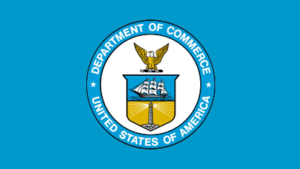
Americans Face Challenges in Taking Over Aging Parents’ Finances
Feb 26, 2015
Virginia Beach, VA (Law Firm Newswire) February 26, 2015 – When a parent becomes incapacitated and is no longer able to manage his or her own finances, a child or other caregiver needs to step in to pay bills and manage money and costs. Taking over a parent’s finances can be difficult, especially in the midst of the other challenges that families face during a loved one’s illness.
“If you are taking over your parent’s finances, a systematic, structured approach to gathering information is a great starting point,” said Andrew H. Hook, a Virginia elder law attorney with Hook Law Center, which has offices in Virginia Beach and northern Suffolk. “From there, you can identify what your resources are and what needs to be done.”
First, the children of a person in need should find out whether or not there is a durable power of attorney in place. If so, the person who was given power of attorney can take over the finances. If not, it will be necessary to go to court to get access to financial accounts.
Next, children can gather all of the information about their parent’s finances. This includes finding out where financial records are located; identifying where accounts are and what their account numbers are; identifying sources of income; and taking stock of monthly expenses and how they are usually paid. If the parent has a financial planner or accountant, that person should be contacted.
Insurance and benefits should also be examined. It is important to find out what medical insurance is in place, whether a long-term care policy was purchased and whether or not the parent qualifies for benefits from Medicare, Medicaid or Social Security.
Learn more at http://www.hooklawcenter.com/
Hook Law Center
295 Bendix Road, Suite 170
Virginia Beach, Virginia 23452-1294
Phone: 757-399-7506
Fax: 757-397-1267
SUFFOLK
5806 Harbour View Blvd.
Suite 203
Suffolk VA 23435
Phone: 757-399-7506
Fax: 757-397-1267
http://www.hooklawcenter.com/
- Study supports doctor-led approach to end-of-life care planning
The end of a person’s life is a time of intense transition and difficult choices. Although nothing can fully prepare an individual or a family for the gravity of the decisions that need to be made, end-of-life care planning can help ensure that a dying individual’s wishes about his or her care are followed. Traditionally, […] - The effect of procrastination and debt on retirement planning
The desire to create a comfortable, secure retirement is almost universal. Unfortunately, procrastination and debt can have a devastating, though not irreversible, effect on these efforts. While Americans can now anticipate longer-than-ever retirements with ever-higher costs of care, they tend to be less prepared for retirement than in decades past. Procrastination can affect one’s retirement […] - Reducing caregiver stress helps prevent elder abuse
Elder abuse has long been associated with the stress caregivers experience when providing care for older loved ones. Reducing caregiver stress is a key factor in preventing the abuse and neglect of elders. As much of health care moves out of hospitals and into homes, caregivers are charged with providing care to increasingly ill loved […] - What is covered by Medicare in a skilled nursing facility?
Many people on Medicare assume that the program will cover any medical costs they encounter, including the cost of care in a skilled nursing facility. However, coverage for care in a nursing home is actually quite limited, and it is only provided under certain circumstances. Medicare only pays for care in a nursing facility if […] - Avoiding retirement planning pitfalls
Although most people are aware of how important it is to plan for retirement, it is easy to fall into retirement planning pitfalls that have significant consequences down the line. One of the most common pitfalls is money itself. Many people simply do not save enough early enough. It is recommended that people save enough […]




